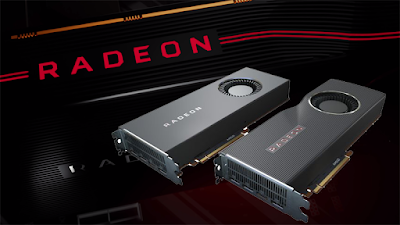Reports are
coming in that AMD and its partners are readying motherboards based on a new
mainstream B550 chipset. Following the X570, B550 will be the second socket AM4 chipset designed
specifically to go with the new Ryzen 3000 CPUs while still being backward
compatible with 2nd gen chips. No word on pricing yet but it’s pretty
safe to assume that it will be significantly cheaper than its enthusiast grade sibling.
B550 will
succeed and replace the aging B450 which probably is the most popular
midrange chipset right now thanks in no small parts to its exceptional value.
With B550, AMD would be looking to carry the tradition on, added some incremental
features. For starters, the new chipset will feature more SATA III ports and
general purpose PCIe (Gen 2/Gen 3) lanes to handle the I/O duties. B550 will
retain its predecessor’s overclocking ability – meaning it’ll just be as easy to
OC a lower priced (and clocked) Ryzen processor as before. On a side note, it’ll be
interesting to see if the passive chipset cooling (with a fan) trend of the X570
based boards will continue on the B550 as well.
B550,
however, will miss on some key highlights compared to the flagship X570. The implementation
of the PCIe Gen 4 will be one of those. This means
it’ll be a PCIe Gen 3 x4 interlink between the motherboard chipset and the CPU,
unlike the PCIe Gen 4 x4 connection found in the X570 chipset. Fortunately, this
will not affect real-world performance in any tangible way as we’ve already
seen Ryzen processors performing identically on both X570 and B450 (also PCIe Gen
3) based motherboards. Plus, the downstream PCIe Gen 4 lanes from the processor itself should be there for the motherboard manufacturers to put those in good use. Reports also suggest that the population of the USB 3.2 Gen-2 (10 GB/s) ports may not see a rise – at two, it'll be identical to previous generation chipsets but
much lower than the eight found in X570.
All in all,
AMD’s new B550 chipset could be a perfect solution for budget builders among us,
especially those looking for a reasonably future-proof Ryzen 3000 PC but still
holding out due to the high price of X570 motherboards.






